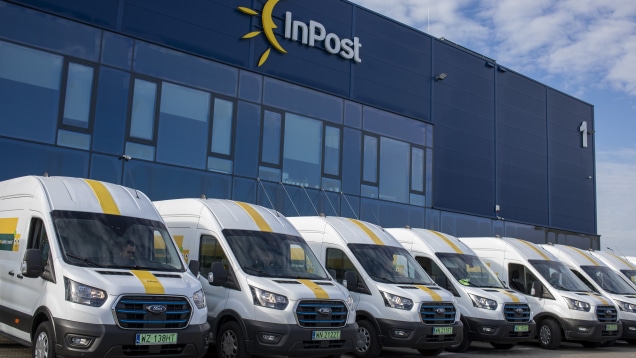Cloud computing market in Poland
Sylwia Ziemacka talks to Christian Wencel, Head Eastern Europe at Snowflake.
According to the report “The cloud computing market in Poland 2021. Market analysis and development forecasts for 2021-2026”, published by PMR in December 2021, the value of the cloud computing market was growing in Poland in 2021 at a rate of more than 30% (year on year). The forecasts assume that in 2022 the value of the cloud computing market will reach PLN 3 billion.
Snowflake is the Data Cloud company which enables organisations to mobilise their data in the cloud is a part of this growth. The company was founded in 2012 in California by three data experts: Benoit Dageville, Thierry Cruanes and Marcin Żukowski. They started from scratch and built a data platform that would harness the immense power of the cloud. But their vision didn’t stop there. They engineered Snowflake to power the Data Cloud, where thousands of organizations have seamless access to explore, share, and unlock the true value of their data. In 2021 Snowflake opened its engineering office in Warsaw.
In 2021 you opened your office in Warsaw. Why the decision to choose Warsaw for such an operations?
There are multiple reasons for that. First I think we are the most Polish silicon Valley company. We have a Polish co-founder, the head of our engineering degree. Marcin Żukowski is Polish as well, even though he lives in San Mateo, and I do have a Polish wife. So there’s a certain emotional connection definitely to the country. The other thing is for the engineering that’s here is an amazing talent pool within Poland. So I think that was one of the reasons why we decided to open the engineering up here. The growth we’ve seen over the last three years is significant, so we decided to double down on the market and also found the sales team here.
Your operations in Warsaw are connected to the services provided to the Polish companies, to the region or globally?
The engineering team is working globally. They work on very important parts of the product, for example, our data sharing capabilities. The sales team here in Warsaw is responsible for the entirety of CE with a very strong focus on Poland being the strongest market of the region.
What we need is also a little explanation on what is actually the Data Cloud?
Essentially it’s two components. If I look at the Data Cloud, the first part is platform technology. So what we allow our clients to do is to put all the data they have into any cloud they want. We run on all three data and hyperscalers, and we have multiple deployment zones across the globe.
So then you have all your data in the cloud, which is very cheaply stored and very easy to access. So the next point is how can I analyze it? We enable our customers to drive multiple data workloads such as data science or data engineering, and in any programming language they want to actually get to the data.
The Snowflake platform also separates compute from compute, which means that organisations can scale up and scale down activity as required, and pay for what they use.
Snowflake Architecture allows everybody to have their own resources and run the queries in the time they want. So what that means is you have all your data, any kind of format, you can access it as you want. With unlimited resources.
But the problem you have is if you make a business decision, it needs to stand trial in the real world. And then we come into I don’t have all the data that is available out there. I need to get external data. And so we connected close to 6,000 customers with each other and allowed them to share data.
How do you see the cloud market today and what are the factors actually behind the growth?
Cloud computing market grew by 30% and it’s expected to grow by another 20% – 30%. So you can see how it’s accelerating. We do think that Poland or Eastern Europe as a whole can become one of the strongest regions for Snowflake within Europe for a multitude of reasons.
There’s an amazing talent pool in Poland, and many companies in the region are driving big digital innovation. We expect to double within size over the next year and then keep on that growth.
You said that the Polish companies are two steps ahead. Really?
Certainly, for example the cloud adoption in Germany is a little bit ahead of Poland. But when I talk about digital services being provided in Poland, which start with interaction with the government or payment solutions etc., I do think that Polish companies are ahead of most of their Western counterparts.
Google opened the first data center in Warsaw. Microsoft is supposed to be next. These companies don’t invest billions of dollars for no reason.
I think a big challenge that companies have to overcome is regulation or the fear of regulation because there is no local regulation that forbids, for example, Polish banks to go into the cloud. But we have similar discussions that we had a couple of years back in Germany or the UK where it starts. Well, I’m not allowed to move data into the cloud. And then well, I’m not allowed to move data outside of the country and nowhere well, data has to reside within the EU, which is true. And it’s more the fear of let’s say, grown institutions to go through that way, deal with the regulators and execute their process. I also understand that as the type of products become more advanced it also goes in line with this whole cybersecurity issue and in terms of the safe use of the data. I believe that’s the major concern, especially if you mention national institutions or financial institutions. Yes, but it’s an interesting argument which I don’t buy completely because let’s take let’s take Dino. Who do you think has a better cybersecurity department, Google or Dino?
But in terms of your forecast of your growth here in Poland or in Europe, do you have some particular sectors that you are targeting or where you see the biggest space to grow?
So globally, retail is one of our sweet spots. It’s a data driven sector that is not as heavily regulated as finance in general. When I look at the Polish economy, I think the strong suits we have here, obviously the utility companies, we have quite a few of. And again, looking at Germany over the last three years, I think many German utility companies are on Snowflake for various reasons. Retail is very important. Poland also has a very active tech scene. You have huge gaming companies and many more that are at the forefront of digital innovation and are using tools like Snowflake and others too to get further out. So I wouldn’t pick one particular sector. We have a verticalization globally because it’s the same platform, but different questions to be asked. But we’re going after all sectors at the same time right now.
What are your perspectives in terms of the growth and the and in terms of the business?
We definitely plan to grow significantly over the next two years, at least doubling the size towards next year. And then we’ll see what’s coming. You have to tackle technologies and plug them into cloud solutions, because otherwise you will be left behind by your competitors.







